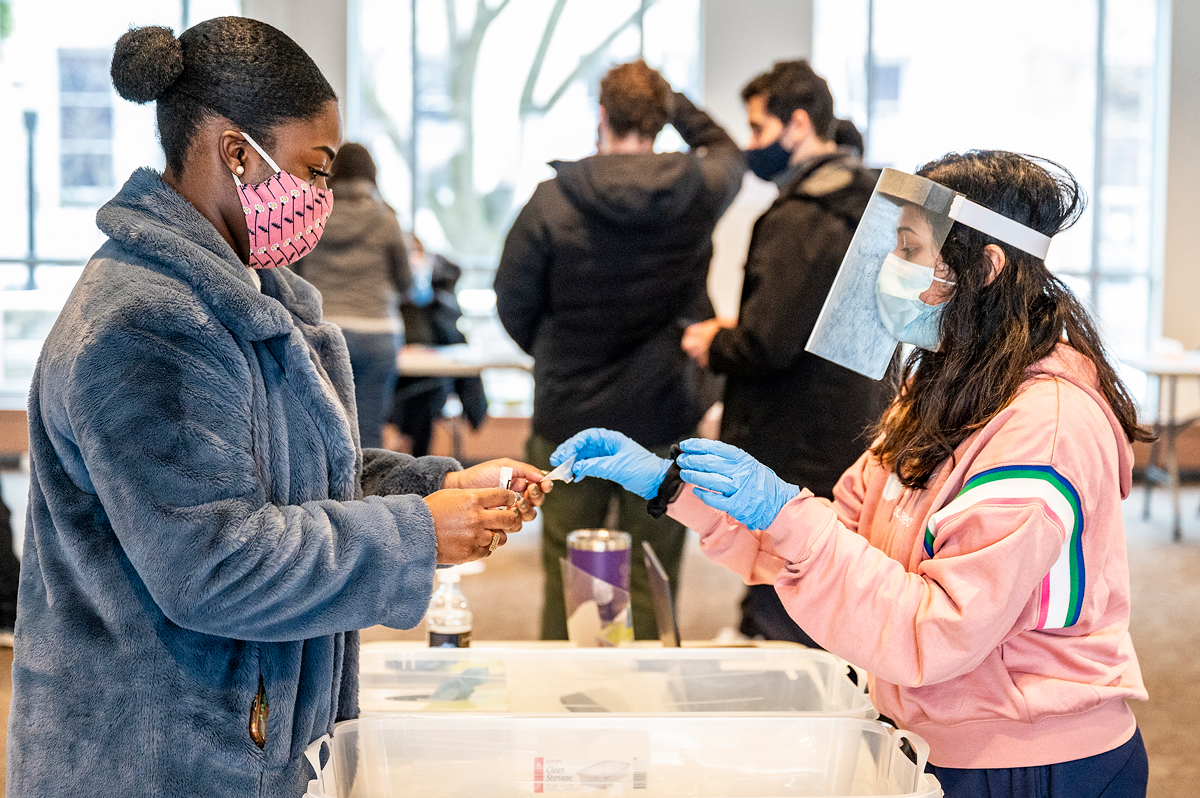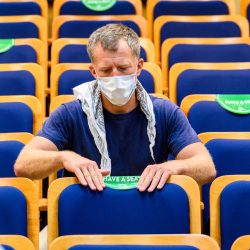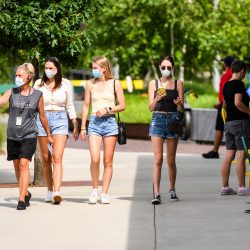
The Safer Badgers app ensures that people are up to date with campus testing requirements. Bryce Richter
To accommodate more regular COVID-19 testing for all students and on-campus employees in the spring semester, UW–Madison has partnered with Shield T3, a subsidiary of the University of Illinois System. The UW is incorporating Shield T3’s accurate and quick saliva-based test into its existing campus testing program.
In the fall semester, the university provided 12,000 tests per week for members of the campus community. Shield T3 can add up to 10,000 tests per day to ensure that everyone is tested regularly.
“We know that our testing has and will continue to play an important role in limiting disease spread,” says Chancellor Rebecca Blank.
UW–Madison is also using a mobile app called Safer Badgers to help the campus community manage their testing schedule and results and ensure people are up to date with campus testing requirements.
“To date, our campus safety protocols have helped ensure COVID-19 has not spread in spaces like classrooms and laboratories,” says Provost Karl Scholz. “With increased testing and the ability to ensure our employees and students are getting tested regularly, we feel confident about our path forward for the spring semester.”
UW–Madison is offering a hybrid model of instruction for spring, with a mix of in-person and virtual courses.
In addition to expanded testing, the university continues to provide isolation and quarantine space for University Housing students, as well as performing contact tracing of all employees and students who test positive.
“We know that testing is a powerful tool at our disposal for helping control the spread of the virus that causes COVID-19,” says Jake Baggott, the UW’s chief health officer. “That said, we will continue to need everyone in our campus community to play their part: wear a face covering, maintain physical distance, avoid gatherings with people you don’t live with, and wash your hands often.”
Published in the Spring 2021 issue



Comments
No comments posted yet.